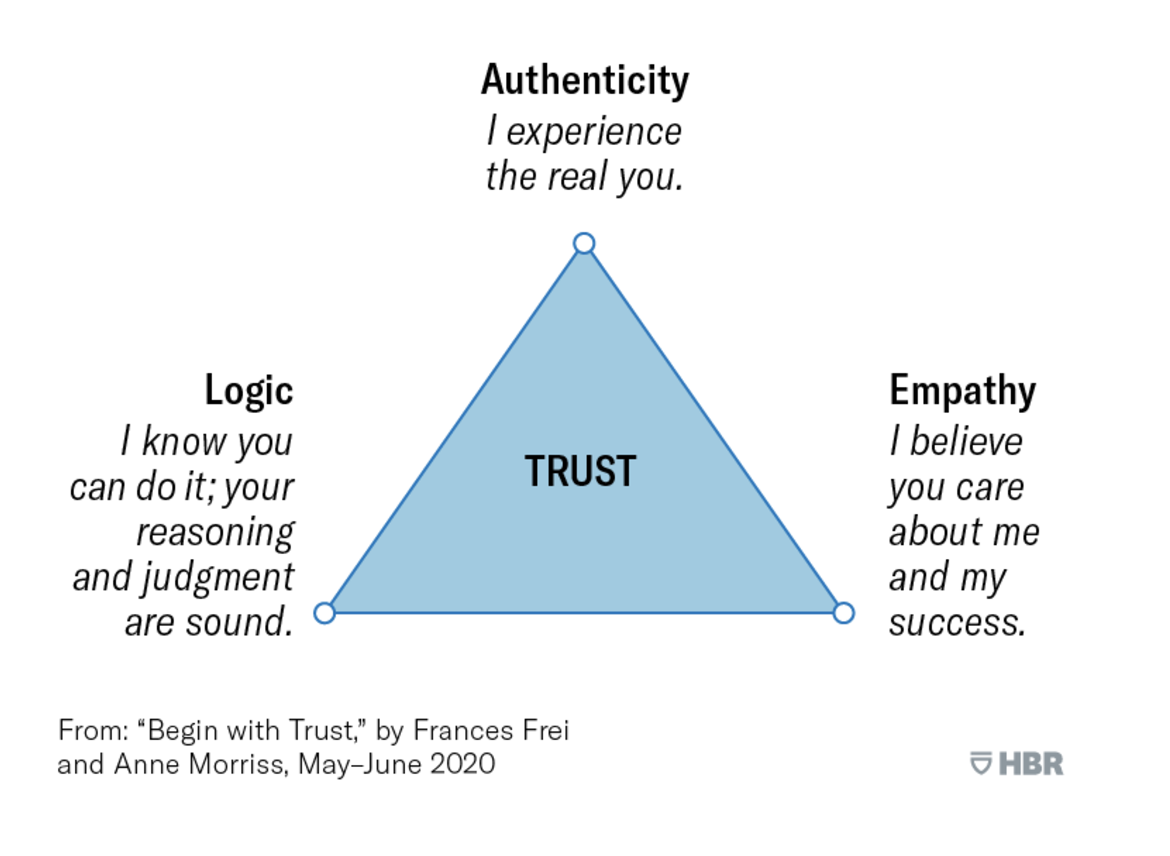Getting buy-in for projects either at work, or from an organization can be difficult, but for SEO projects, it can be even more challenging as it is not always easy to tie the SEO work to results.
To improve buy-in, looking to soft skills outside of SEO can make the difference.
If we know our soft skills and and what our strengths are, then we can understand others and be able to communicate with them better. This then helps when we want to get buy-in for projects, including SEO.
In this article, we go through some key areas to address to help you get buy-in at your company such as communication and the ability to cultivate trust.
Soft Skills
We spend a lot of time improving our technical SEO or working on keyword research and reporting, especially getting up to speed with Google Analytics 4 (GA4), but how much time do we spend on improving our soft skills? Do we know what our strengths are?
When working in SEO and with the wider team, soft skills become important.
Soft skills, also called interpersonal skills, are non-technical and impact your performance not only at work but also in your personal life.
They include how to manage your time, communicate with others, resolve conflict, and listen to others, to name just a few.
The CliftonStrengths helps individuals focus on what they are naturally good at. It helps assess your soft skills, including how empathetic you are, which is a great leadership and team player skill.
Empathy
Tom Critchlow said getting buy-in requires executive empathy. He explained that “executive presence is the art of seeing the problem from someone else’s point of view.”
We need to make the stakeholders, such as the CEO or CFO, want to care about SEO and how it can help them achieve their goals and the broader business objectives.
Empathy is putting oneself in another person’s shoes and seeing it from their side. We should apply this not only to the main stakeholders but to the development team or design team and others who will become your biggest allies.
Trust
Empathy is a key part of the trust triangle, and it also includes authenticity and logic.
It takes a long time to build trust, and when it is lost, most of the time, it can be traced back to a breakdown of one of them.
Your colleagues and the key stakeholders will trust you when:
- They feel you care about them, which is empathy.
- They have faith in your competence, which is the logic (and why it is important to show results from SEO work clearly)
- They believe they are interacting with the real you, which is authenticity.
 Screenshot from hbr.org/2020/05/begin-with-trust, November 2024
Screenshot from hbr.org/2020/05/begin-with-trust, November 2024Reporting
If we want the stakeholders to allocate more budget next quarter or even next year to SEO, review the previous reports you and your team have worked on and have shared with them over the year.
What reports have they read? Which ones have they ignored?
Make sure that you get feedback monthly or at least quarterly on what reports the stakeholders find useful and which metrics they want to see more of in the future.
Nobody wants to see pages of reports – the stakeholders are busy people. You should focus on reporting on the most important KPIs to them.
Some people with minimal time to fully understand SEO (such as the CEO and CFO) may think organic traffic is a given, and less investment would not necessarily mean less traffic.
Therefore, it is always important to show what the SEO team did and provide clear results.
For example, tell them “we created the content strategy and built out the blog on X topics, and this created an uplift in traffic and revenue by X%”. Showing the direct impact of SEO helps justify the SEO team and their work.
KISS
KISS stands for Keep It Simple, Stupid. Although this framework is used mainly in the design space, it can also be applied to the wider business.
It has been used in many companies, like Apple with the iPhone. Keeping something focused and simple is difficult.
We can also apply the KISS principle to SEO and get buy-in by removing the jargon that comes with it – just focusing on what the impact will be.
For example, instead of saying that we have a lot of 404 status codes when products are out of stock, show the stakeholders that the product pages return an empty page. There is nothing on the page to keep the user there.
Show the traffic to some of these key product pages, and when they are out of stock, calculate how much revenue is lost.
KISS goes back to the reporting element. Keep the reports simple and show only what the stakeholders value as important. Don’t include tracking of hundreds of keywords if they are not driving clicks.
Focus on the main terms that generate clicks and impressions in Google Search Console. Use the events in GA4 to show how many conversions the site and the pages have generated.
Open Line Of Communication
Make sure you speak to the stakeholders throughout the year, not just when reports are due or when you need more budget.
Share with them news such as the Google updates or any positive impact from the SEO work that has meant revenue and conversions are up.
Google updates are still important to share whether your site has been affected. It is better for the stakeholders to find out about these updates from the SEO team than from the client services team or those who do not work in SEO.
Other key elements to share are some insights from conferences. What are some initiatives they have done that have been successful? Were some of these the same initiatives you wanted to implement, but there was resistance?
Is there a company newsletter you can feature, or is there a marketing newsletter you can contribute to? Share these with the stakeholders.
If you or the team write for any third-party sites, share these articles internally.
Alternatively, if there was a webinar the SEO team took part in that had a lot of views and likes, send this to the stakeholders.
Integrate SEO Within The Company
Make SEO everyone’s responsibility.
Highlight in the meetings or conversations with stakeholders that doing a site migration, changing the homepage of the site, or amending the content management system (CMS) is not just the work of the SEO team. It is the responsibility of the whole company.
For example, a site migration cannot be done on a Friday evening, or the homepage should not be drastically changed during sales periods.
SEO should never be seen as an add-on and should be an integrated part of the marketing strategy.
Unfortunately, in many organizations, the SEO strategy can be outside the product and outside the marketing strategy. Create allies within the marketing and product team. Show them how SEO impacts and affects their KPIs and how SEO can help improve them.
Creating allies comes back to working on your soft skills.
We can still have those “water cooler moments” or informal chats even if we are remote working. Ask them how their weekend was, what their hobbies are, do they have family nearby.
In these informal chats, you may also find out their pain points. What are they struggling with? How can SEO help them?
When you start building your KPIs together and helping one another, this builds teamwork outside of your immediate team and helps build more trust.
Competitor Analysis
Not many are happy when their direct competitors beat them in revenue and traffic.
Competitor or market analysis always helps to show some of what others are doing. We can see an estimate of the traffic, the paid ads they are running, and the terms they are ranking for using third-party tools.
However, context should not be underestimated. It may be that the drop in traffic and revenue you are experiencing on your site, is not just your site. Some industries may have seen a dip, while others have seen an increase.
For example, during COVID-19, travel and hospitality saw a drop, whereas Zoom and online applications and games saw their sales increase.
It is now becoming more difficult to track customers, due to AI. And this won’t get easier next year as the search landscape will continue to change. Therefore, always remember to include the context of the industry when reporting on how your site is performing.
Show what others are doing in the market, including new initiatives. This will help build and keep the trust of the key stakeholders.
Mastering Soft Skills In Securing SEO Buy-In
Soft skills should never be underestimated when trying to get buy-in for projects. Understand the needs of your stakeholders and the wider team.
Spend time building rapport with them and learning about their challenges and how SEO and their team can work together to achieve more than if each one worked independently.
However, if you find yourself in a position where nobody is paying attention to the SEO, plan to start testing different elements of what they want to change with the website, for example, changing the categories or changing the home page.
Use a tool such as SEO Testing that allows you to test different URLs; you can do split testing and time-based testing. When you have the data, present it to the stakeholders to show them the results.
SEO is an industry where it is hard to get buy-in and harder to get the budget approved. But work on your soft skills – empathy and trust – to build a team that believes in SEO and supports you 100%.
More resources:
Featured Image: Marciobnws/Shutterstock

